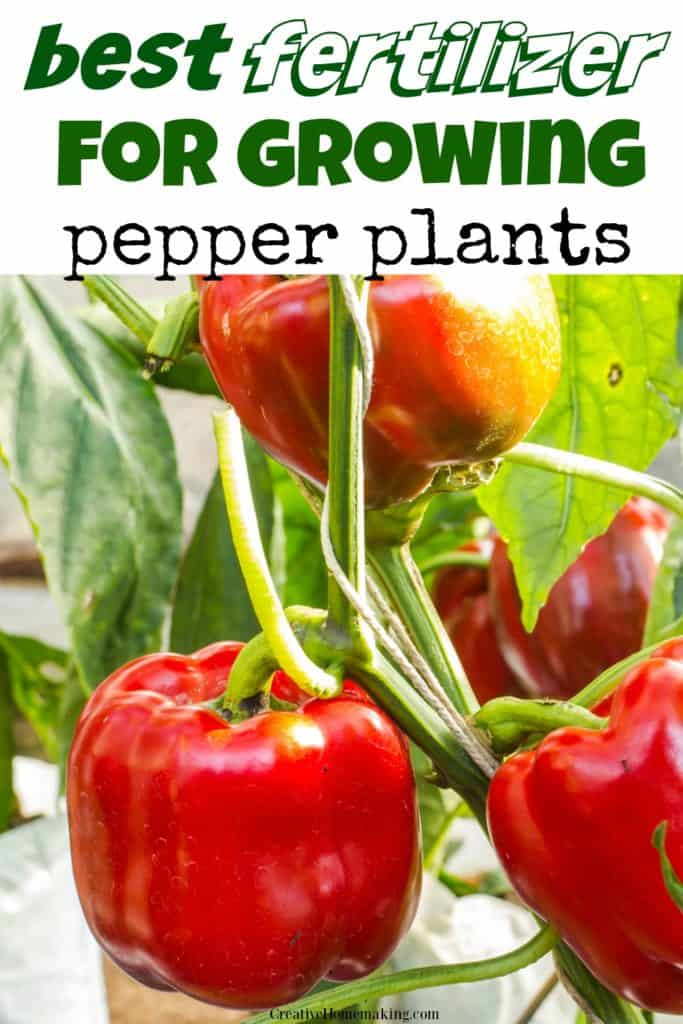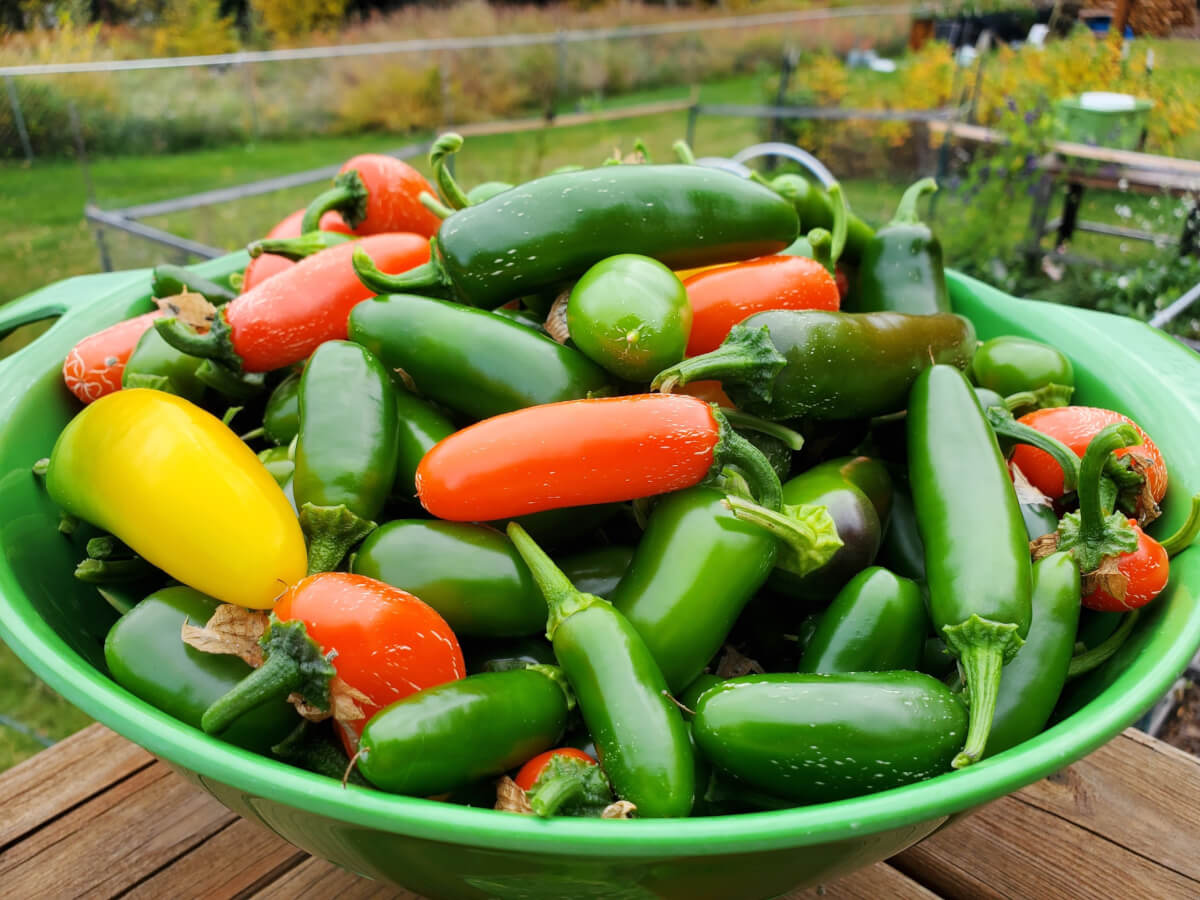Best Fertilizers for Peppers: A Comprehensive Overview to Increase Your Harvest
Best Fertilizers for Peppers: A Comprehensive Overview to Increase Your Harvest
Blog Article
Organic Vs. Synthetic Fertilizers: Which Is Best for Nurturing Healthy And Balanced Pepper Plants?
In the realm of supporting healthy pepper plants, the choice in between natural and synthetic plant foods stands as a critical choice with far-ranging implications. While both choices goal to provide necessary nutrients to support plant growth, the subtleties of their effect on the dirt, plant health, and the atmosphere trigger a debate that echoes throughout the horticulture area. Understanding the unique advantages and possible mistakes of each plant food type is essential for pepper farmers looking for to enhance their returns while preserving an eco-conscious and sustainable technique.
Advantages of Organic Fertilizers
Organic plant foods supply an environmentally-friendly and sustainable strategy to beneficial pepper plants, supplying necessary nutrients without the use of synthetic chemicals. These all-natural fertilizers are acquired from natural sources such as garden compost, manure, bone meal, and algae, promoting dirt health and wellness and biodiversity. Unlike synthetic plant foods, organic options launch nutrients slowly, guaranteeing a consistent and balanced supply for pepper plants to grow.
One substantial advantage of organic fertilizers is their capacity to enhance dirt structure and water retention. By improving soil health, natural plant foods advertise beneficial microbial activity, which aids in nutrient uptake by pepper plants. Furthermore, organic fertilizers minimize the threat of chemical run-off, shielding water resources from pollution and protecting the environment.
Furthermore, natural plant foods add to long-term soil fertility by promoting the development of valuable soil organisms. These microorganisms help damage down organic matter, launching nutrients in a type that is quickly obtainable to pepper plants. best fertilizers for peppers. By fostering a healthy and balanced soil ecosystem, organic plant foods support lasting pepper cultivation techniques that profit both plants and the atmosphere
Drawbacks of Artificial Fertilizers
Synthetic fertilizers, unlike their organic equivalents, posture various disadvantages when made use of to nourish pepper plants, influencing both plant wellness and ecological sustainability. One significant disadvantage of artificial fertilizers is their propensity to seep nutrients from the dirt promptly. This quick leaching can lead to nutrient imbalances in the soil, creating plants to deal with toxicities or deficiencies. Additionally, artificial fertilizers can harm useful soil organisms, such as earthworms and beneficial bacteria, interfering with the dirt environment's equilibrium.
Moreover, the overuse of artificial plant foods can add to water contamination. Excess plant foods not taken in by plants can get rid of into water bodies, resulting in eutrophication, where algae blooms diminish oxygen degrees in the water, damaging water life. Additionally, artificial fertilizers are typically acquired from non-renewable resources, such as nonrenewable fuel sources, adding to carbon exhausts and environmental destruction throughout their production.
Nutrient Absorption Contrast
When comparing natural and artificial plant foods in terms of nutrient absorption, natural plant foods have the advantage of giving an extra balanced and slow-release source of nutrients. Organic plant foods contain a variety of macro and trace elements that are not only valuable for the plants but additionally advertise healthy and balanced soil microbial task, which assists in nutrient uptake.
Moreover, natural plant foods boost soil framework and water retention capability, enabling pepper plants to gain access to nutrients extra successfully. This better dirt top quality promotes origin growth, making it possible for far better nutrient absorption. Artificial plant foods, although originally boosting plant growth due to their high nutrient focus, might hinder lasting nutrient absorption by degrading soil health and wellness in time.
Environmental Effect Factors To Consider

On the other hand, synthetic plant foods, although commonly even more quickly readily available and concentrated to plants, can have harmful effects on the setting if not applied effectively (best fertilizers for peppers). Their manufacturing requires high power inputs, resulting in greenhouse gas emissions and adding to environment change. In addition, the drainage of excess synthetic plant foods can infect water resources, bring about eutrophication and harming aquatic ecological communities.
Finest Plant Food Practices for Peppers
When feeding pepper plants, optimizing nutrient uptake and decreasing environmental influence are essential factors to consider. To accomplish this, it is vital to comply with best plant food practices customized to the specific requirements of pepper plants. One crucial method is to perform a dirt test before applying any type of plant foods. This test can identify the pH level of the soil and determine any type of nutrient deficiencies, More Info guiding you in choosing one of the most ideal fertilizer formula.
Another important practice is to fertilize pepper plants at the correct time. Normally, peppers benefit from receiving fertilizer at planting and afterwards once more when they begin to blossom. Over-fertilizing can cause nutrition inequalities and hurt the plants, so it is important to follow advised application prices.
In addition, selecting a balanced plant food with an NPK ratio that suits pepper plants' requirements is basic. Ultimately, incorporating natural and synthetic plant foods sensibly can aid nurture healthy and balanced pepper plants while minimizing ecological impact.
Verdict

Organic fertilizers supply a lasting and environmentally-friendly technique to nourishing pepper plants, supplying essential nutrients without the usage of artificial chemicals. Unlike synthetic plant foods, natural options release nutrients gradually, making certain a well balanced and constant supply for pepper plants to thrive.
Synthetic fertilizers, in comparison to their natural equivalents, pose various downsides when made use of to nurture pepper plants, impacting both plant health and environmental sustainability. When comparing artificial and natural plant foods in terms of nutrient absorption, natural plant foods have the benefit of providing a more balanced and slow-release source of nutrients.Additionally, organic plant foods my website improve dirt framework and water retention capability, enabling pepper plants to accessibility nutrients extra efficiently.
Report this page